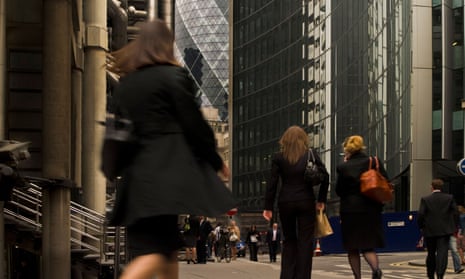The gender pay gap for women over 40 is almost double the average when they enter management – and it gets worse as they get older, a study has found. The Chartered Management Institute (CMI) found that women over 40 in management roles are paid 35% less than men, a much greater disparity than the 19% average gap across the whole economy. Once women in senior jobs enter their 60s, the gender pay gap widens further to 38%.
The findings were presented to the women and equalities select committee on Tuesday, ahead of a series of fact-finding missions by MPs regarding the level of pay discrimination between men and women.
In October, the government welcomed a series of proposals from Mervyn Davies aimed at promoting women to Britain’s boardrooms in an effort to better represent them in senior positions. Davies said he wanted to see women make up no less than 33% of boardroom positions within the next five years. His previous target of 25% was met earlier this year.
Maria Miller, Tory MP for Basingstoke and chair of the committee, said it was important that women who secured higher ranking positions were rewarded in the same way as men.
Official earnings data shows that women in their 20s and 30s in full-time work are paid roughly the same as men, but a large gap opens up once they enter their 40s.
A separate study by the CMI of 72,000 managers at all ages estimated that for 26- to 35-year-olds the pay gap is 6%; for those aged 36-45 it is 20%; from 46-60 it is 35%; and for those aged 60 and above it is 38%.
In her submission of evidence to the committee, CMI chief executive Ann Francke warned that there was little in the data to suggest the pay gap will disappear soon. If anything, female managers over the age of 40 face a bigger pay gap than a decade ago, she said.
“Anyone who believes hitting the Davies targets abolished the glass ceiling is misguided,” she said. “Equality and fair progression means much more than having the same number of men and women on your board.”
“Female managers face what I believe is more of a ‘glass pyramid’ than a ceiling. The walls close in with every step up, and you’re likely to slip down the pecking order when it comes to pay.”
Sheila Wild, the founder of the Equal Pay Portal, said men would routinely ask for higher bonuses than women to boost their pay, entrenching already large disparities in earnings.
The CMI said that tackling the gender pay gap “will require a root and branch transformation of business culture to address unconscious bias”.
Francke said female managers at all levels face not only the traditional discrimination from “old-boys’ networks” but also “a more pervasive and potentially more damaging unconscious discrimination”.
She said: “Mothers returning to the workplace are often shepherded into part-time or less challenging roles to fit in with childcare from well-meaning but misguided managers.”
The CMI has recommended managers be held to account for combating pay inequality and businesses should be more transparent about pay levels and opportunities to progress up the levels of management.
The committee has criticised the government’s approach ahead of several parliamentary hearings, saying that recent announcements devote little attention to women over the age of 40, despite evidence that they are the worst affected group.
In 2014, the gap between all male and female employees stood at 19.1%, measured by median gross hourly pay, including part-time workers and excluding overtime. For all full-time employees across all age groups, the gender pay gap is 9.4%.

Comments (…)
Sign in or create your Guardian account to join the discussion